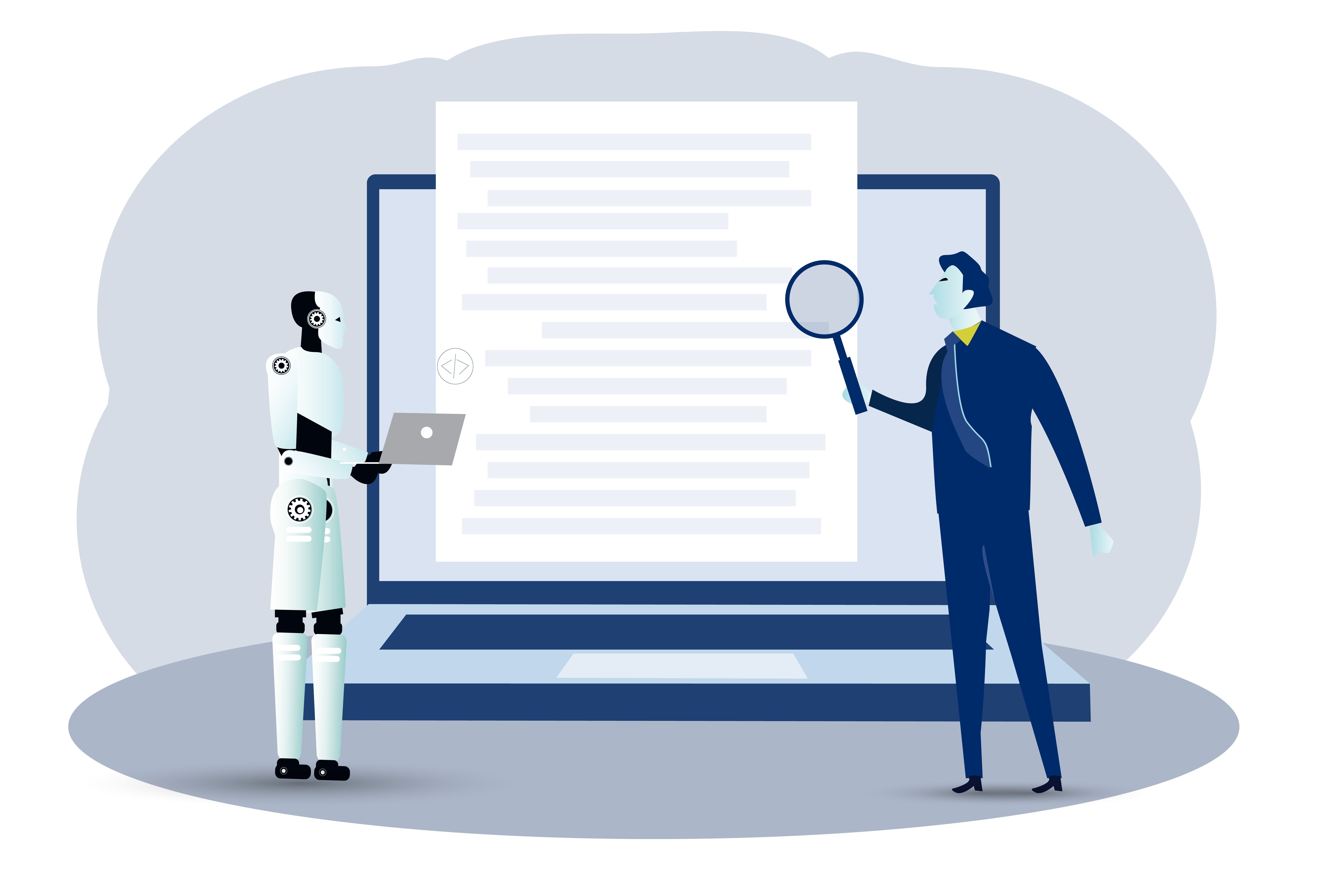Banner artwork by good render / Shutterstock.com
Picture yourself as an orchestra conductor directing a brilliant symphony with precise control over every instrument. Lawyers overseeing the adoption and use of AI in organizations do much the same, juggling a host of ever-evolving ethical, legal, and technical factors to achieve harmonious outcomes.
Effective AI supervision requires specialized knowledge, interdisciplinary collaboration, and adaptability. But it is a skillset you can learn. Your expertise in supervising legal matters, staff, and business operations is your existing advantage. Pair it with the right training, and you can successfully promote responsible AI use in your organization.

Artwork by Aleutie / Shutterstock.com
But what should your training focus on? Below we explore the importance of gaining legal expertise, technical insights, and practical skills in four key areas:
- Algorithmic functions
- AI regulations and best practices
- Data management and privacy
- Intellectual property right
1. Develop an understanding of algorithmic functions.
To make informed decisions while managing AI applications, you must first understand how AI algorithms process data and reach conclusions. Some ways to build a foundational understanding of algorithmic operations include:
- Become familiar with AI concepts and terminology through online and in-person courses that teach AI and machine learning basics.
- Read articles and books that explain how legal systems use algorithms and the legal and ethical challenges that arise.
- Talk to experts who can clarify the technical aspects of algorithms.
- Get involved in AI projects to gain hands-on experience.
- Join groups or forums to stay up-to-date on the latest AI developments and to network with other lawyers and specialists interested in AI.
2. Become familiar with the relevant AI regulations and best practices.
Monitor the appropriate agencies to keep up with the relevant laws and regulations in your industry and jurisdiction. Right now, much of the focus is on better understanding the challenges and legal implications of using AI and deciphering the intricacies of upcoming compliance requirements. You might consider:
- Subscribe to industry and agency newsletters that share news on AI and legal regulations. Follow them on social media, too.
- Subscribe to legal publications that inform you of relevant case outcomes.
- Follow AI law experts on social media to get their insights.
- Attend AI law conferences, seminars, and workshops to learn from experts and network with others interested in the field.

3. Enforce rigorous data management techniques.
Data is the fuel that drives AI systems, making efficient data management essential for maximizing benefits. To develop responsible practices for collecting, storing, and managing data in your organization, you must first become well-versed in data privacy, security, and quality control strategies. Basic “musts” include:
- Be transparent about your data collection practices. Let customers know what data you collect and how you use it.
- Obtain the required permissions before collecting any data.
- Collect only the specific data needed. The less data you collect, the less risk of a data breach and the less harm a breach may cause.
- Use robust security measures to protect data, e.g., encryption, firewalls, and access control.
- Regularly delete data that is no longer needed.
- Give customers control of their data. Let them opt out of data collection and delete their data as requested.
Data is the fuel that drives AI systems, making efficient data management essential for maximizing benefits.
4. Monitor intellectual property issues.
AI generates new inventions and ingests existing copyrighted materials, raising complex intellectual property (IP) issues. Corporate lawyers must often track fast-moving copyright, patent, trademark, and other issues regarding traditional and AI-generated works. Legal concerns at the intersection of AI and IP include:
- Liability for AI-caused harm. Increasingly autonomous AI systems could cause harm to people or property. Who is liable for that harm?
- Fair use of AI-generated works. The fair use doctrine allows for the use of copyrighted material without permission in specific circumstances. Courts are still determining how fair use will apply to AI-generated works.
- Ownership of AI-generated works. Because AI systems can create works without human intervention, who owns the copyright in AI-generated works?
- Patenting AI inventions. It’s unclear whether AI inventions can be patented because they are often the product of complex processes that combine human creativity and ingenuity with AI algorithms.
Commit to continuous learning for responsible AI adoption.
The role of lawyers as orchestrators of responsible AI adoption is challenging and pivotal. But with the right tools and mindset, you can become the skilled AI conductor organizations need now and in the future.
As AI continues to evolve, companies will look for lawyers whose commitment to lifelong learning and interdisciplinary collaboration can help them harness the immense potential of AI technologies while minimizing potential risks.
By understanding algorithm functionalities, staying up-to-date with AI regulations, mastering data management principles, and navigating intellectual property issues, you can confidently direct the integration of AI systems while addressing ethical, legal, and technical concerns.
As AI continues to evolve, companies will look for lawyers whose commitment to lifelong learning and interdisciplinary collaboration can help them harness the immense potential of AI technologies while minimizing potential risks. The symphony of AI can play harmoniously in the legal landscape, confidently directed by well-trained and adaptable legal professionals.




